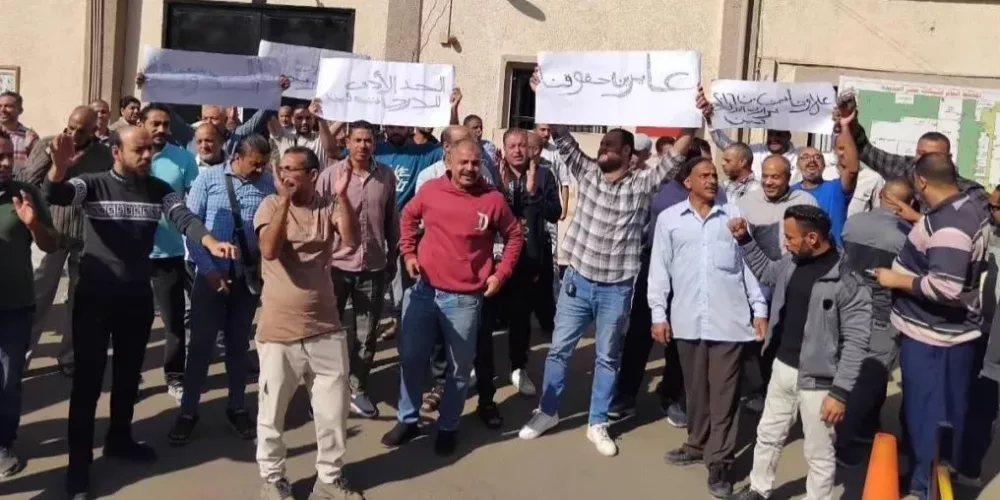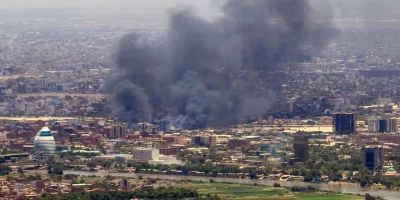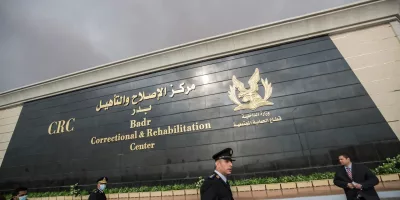The Committee for Justice (CFJ) has documented a protest held on Wednesday, November 12, by workers of the Cairo Drinking Water and Sanitation Company, calling for increased incentives, permanent employment for temporary staff, and the gradual implementation of the minimum wage.
Workers from the Geziret Al-Dahab and Imbaba stations in Giza also joined the demonstrations, reaffirming the demands raised by their colleagues at dozens of sites and water stations across Cairo.
According to CFJ, the protest came in response to Company Circular No. 11, issued on Tuesday, November 11, which included promises to present a proposal for increasing collection incentives to the board, exclude the collection reward from the minimum wage calculation, waive sign-out requirements for collectors, and count payments made through the “Fawry” app toward monthly targets.
While the circular offered partial concessions, it failed to address demands for applying the minimum wage or securing permanent contracts for temporary workers. This prompted workers to escalate their actions, with the number of stations participating in strikes rising to nearly 20, according to one of the protesters.
Workers’ grievances date back years, including demands for unpaid special allowances since 2016 and the regularization of temporary staff, some of whom have worked for over a decade without permanent contracts.
Since the issuance of the decision setting the minimum wage at EGP 7,000, workers have repeatedly called for its implementation in line with the gradual scale outlined in Prime Ministerial Decree No. 2594 of 2025. However, the company’s management has consistently refused to comply, despite repeated promises to meet workers’ legitimate demands.
The crisis has deepened further due to the administration’s failure to apply qualification equalization fairly. The company adopted selective criteria that allow management to enforce the rule at its discretion, based on Circular No. 14 of 2019, which stipulates qualification equalization for employees who obtained higher degrees during service under restrictive conditions deemed unfair by workers.
CFJ expressed its solidarity with the workers of the Cairo and Giza Drinking Water and Sanitation Company, stressing their right to demand fair treatment, particularly regarding the implementation of the minimum wage. The committee also emphasized the importance of transparency in addressing workers’ demands, especially amid the difficult economic conditions they face.






